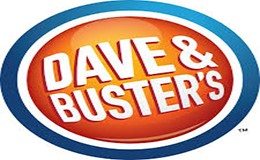The setting is your family room. The props are simple: a towel, a sofa cushion and an empty water bottle. The actors? A pair of four-year-old best friends. The one wearing her father’s bedroom slippers commands, “I’ll be the daddy, and you be the baby.” For the fifth time this afternoon, they play these roles, and they may keep going, reenacting the scene repeatedly. But what are these children getting out of this game? To adult eyes, both the story and the dialogue seem nearly identical. So what’s going on?
What are Role Playing Games?
These children are learning about relationships, the world and their place in it. This is imaginative play, an early childhood form of a role-playing game (RPG), which is an interactive form of storytelling. This type of play allows children to explore many things: big feelings, seeing the world from another’s viewpoint, making choices and cooperating in play.
This collaboration requires children to listen to one another, take turns, compromise, follow directions and make decisions. These are skills that the Pre-K set will need to master as their world expands.
Why the Endless Do-Overs?
- Testing Outcomes. Children are born researchers who understand that sometimes changing one small thing can vastly affect an outcome. Will the other players respond differently? How does this affect the story?
- Exploring Choices. Occasionally, a choice in play has natural consequences that result in unwanted outcomes, and the players rescript their game to get a different result. They are failing in a safe space and learning perseverance. They are also beginning to recognize boundaries and how to react when rules get broken.
- Learning Visualization. RPGs call on players to form a picture in their minds about what is happening and to think metaphorically, allowing one thing to represent another. These skills are used in both reading and math readiness.
Do Older Kids Play RPGs?
Like their preschool counterparts, older children often participate in imaginative play, with a few key differences. Younger elementary-aged children frequently still engage in open-ended RPGs: playing house or school, pretending to run a store. As they reach the tween years, some kids begin to play tabletop RPG games (TTRPGs) such as Dungeons & Dragons, Magic: The Gathering, Kids on Bikes and others.
- Following Rules. Games, including RPGs, have more rules in middle childhood, imposing organizational and behavioral demands on participants.
- Playing Cooperatively. To extend the game with others, players must become less rigid and self-regulate more. Sharing both time and props with other players has the built-in reward of a group who returns to play together again and again.
- Planning Ahead. Quite often, the play will show up as a lot of setups and little actual playacting. It’s about process, not product. When school-aged children say they are “playing,” frequently they are preparing for the game they have in mind. They are practicing organizational skills. By projecting what they will need to play their game successfully, they are planning.
How About Teens?
Teens play many of the same TTRPGs as their younger counterparts but with several key differences.
- Pushing Boundaries. Rather than simply learning and applying the rules, teens look for ways to use game rules to their group’s advantage.
- Connecting Kids. RPGs, as with much of adolescence, are about peer relationships. Teen players are more interested in role-playing (parlay) than fighting (melee).
- Building Skills. RPG-playing teens play more tactically, planning ahead for potential situations and challenges. They are also practicing self-regulation, time/resource management and flexibility.
- Staying Safe. RPGs can be safe spaces to explore a wide variety of behaviors as the Game Master (GM) narrates events, settings and non-player characters (NPCs). Skillful arbitration of game rules and interpersonal dynamics can be tricky, and an experienced GM is a must. Keeping lines of communication open with RPG-playing teens and their GM, is recommended.
What About Kids Who Are Neurodiverse?
Neurodiversity acknowledges that both thinking and behavior are diverse within human populations. Neurodivergence describes the spectrum of ways people’s brains take in, process and respond to information and stimuli. Neurodiversity includes ADHD, autism spectrum, dyslexia, dyscalculia, OCD and other diagnoses.
- Practicing Skills. RPGs can be effective learning tools used to help everyone practice specific social and organizational skills in low-risk environments. Empathy, collaboration and listening are required of all players to create a successful long-term RPG campaign and failing safely reinforces learning.
- Comforting Rules. RPGs, despite the large number of choices they offer their players, provide the comfort of a set of rules. Having a set of expressly stated rules helps individuals who are practicing successful social interactions.
Ultimately, the goal for RPGs is not about who wins or loses but extending the play for as long as possible. Children of every age, and adults too, can benefit from playing RPGs, which are not only fun but let players acquire and practice social and organizational skills needed to succeed in life.
Dee Cárdenas is a 20+ veteran teacher living and gaming in Austin, TX. Ms. Dee has been gaming with kids since 2015 and uses RPG as often as she can in the classroom.














